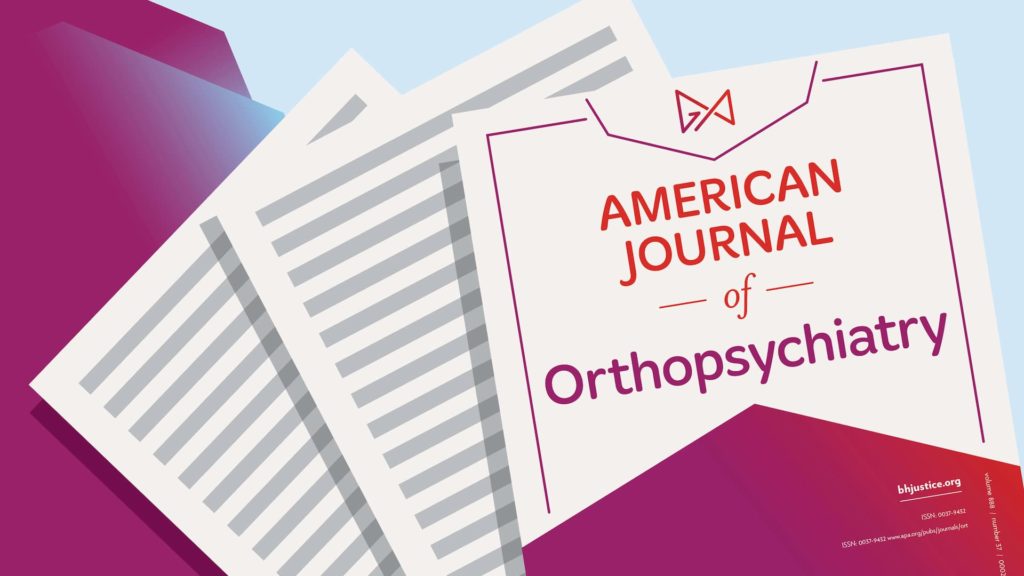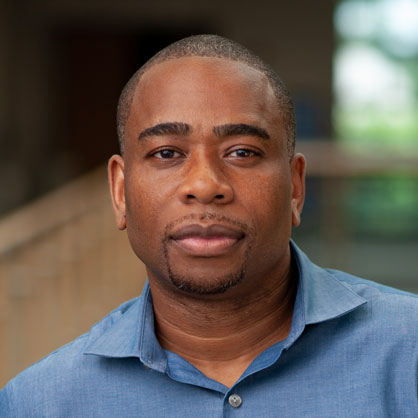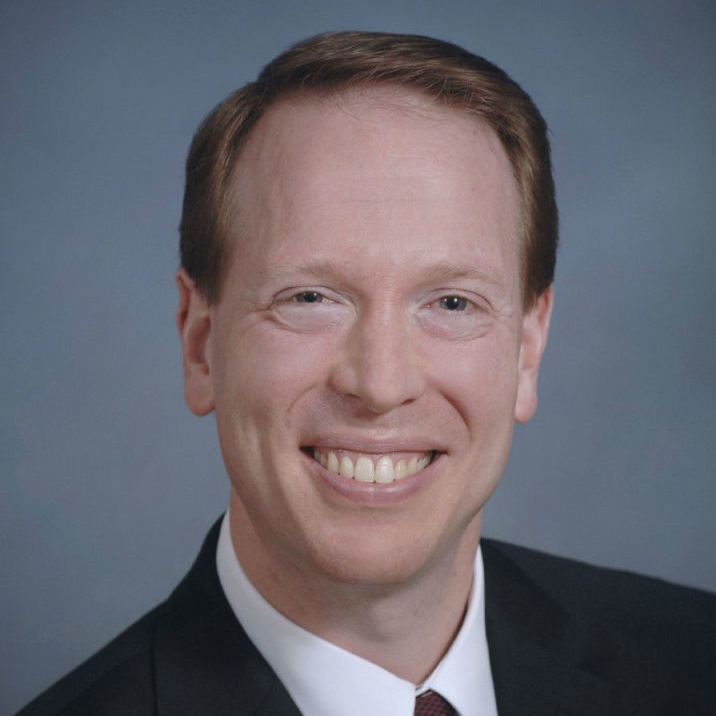American Journal of Orthopsychiatry (AJO)
The American Journal of Orthopsychiatry (AJO) is a bimonthly peer-reviewed journal published by the American Psychological Association.
Reaffirming our Commitment to Social Justice

The AJO Co-editors Kendell L. Coker, PhD, JD, and Ryan P. Kilmer, PhD, and the Board of Directors of the Global Alliance recently reaffirmed our long-standing commitment to social justice.
Read the full statement for guidance and support to researchers interested in submitting to AJO.
Check out APA’s recent interview of Kendell and Ryan reflecting on the importance of AJO to the field, their priorities, and the challenges facing AJO in the current climate.
Interested in submitting an article to AJO
Learn about current editorial policies for AJO and how to submit manuscripts for publication.
Read the latest edition
View the table of contents for the latest edition of AJO.
Remember: Global Alliance membership gives you free access to all articles in AJO.
Meet an AJO Researcher
Get insights from the researchers behind the work in our Meet an AJO Researcher blog series.
About AJO
AJO is dedicated to informing public policy and professional practice and to the expansion of knowledge relating to mental health and human development from a multidisciplinary and inter-professional perspective.
Consistent with Global Alliance’s mission, the journal publishes articles that clarify, challenge, or reshape the prevailing understanding of factors necessary for a humane and just society.
Establishing a Path to Unity: Recommendations for the Biden/Harris Administration [2021]
Suicide Risk Assessments: Examining Influences on Clinicians’ Professional Judgment [2015]
Consensus Statement on Group Care for Children and Adolescents [2014]
Remember… your membership to the Global Alliance gives you access to ALL of the articles in AJO!
Submissions are evaluated with respect to the importance and timeliness of the topic, scholarly and methodological rigor, interdisciplinary perspective, and clarity of implications for research, behavioral health practice and administration, and social policy.
For more information about the scope of the journal, criteria, and procedures for selection of manuscripts for publication, manuscript submission instructions, and editorial policies, please review the Instructions to Authors.
We invite authors to visit the American Journal of Orthopsychiatry manuscript submission site to learn about current editorial policies for AJO and to submit manuscripts for publication.
If you have questions about a manuscript that has been submitted or that you are interested in submitting, please contact gro.e1740158904citsu1740158904jhb@O1740158904JA1740158904.
Unlimited electronic access to AJO articles is included in your Global Alliance membership!
View pricing for individual or institutional print subscriptions.
- Log in at my.apa.org.
- The products and benefits of your subscription (including access to AJO) are listed under the “Subscriptions” section.
Logging in for the first time?
Your APA username is the email address that you used to sign up for your Global Alliance membership. The first time logging in you will need to create a password, using the “Forgot your password or email/username?” link. This will take you to the next page in which you will enter your email address in the field under “I don’t know my password.” The system will email you a link to create your password. If your email is associated with a Google account, you may also log in using Google.
If you need assistance with APA’s electronic products, please contact gro.a1740158904pa@ec1740158904ivres1740158904remot1740158904suc1740158904.
Subscribe to the RSS feed for AJO
Opt-in to receive alerts from AJO:
- Log in at psycnet.apa.org.
- Click on “My PsycNET” on the far right of the blue bar at the top of the page.
- Click the second tab, “PsycALERTS.”
- Click “Add Journal Alert.”
- Find AJO, checkmark the box to the right of the journal, then scroll to the bottom of the page and click on “Subscribe.”
What does AJO Publish?
The journal is published 6 times a year, including special issues, with theoretical, policy-analytic, and empirical articles.
Contemporary topics in AJO’s topical scope include, but are not limited to:
- public behavioral health and prevention
- institutional reform
- causes and solutions to behavioral healthcare disparities
- adaption of behavioral health methods to the needs of racial, ethnic, cultural and other minority groups
- responses to natural and human-made disasters
- immigrants and refugees
- underserved behavioral health populations
- protection of vulnerable people
- sociocultural dimensions of behavioral health problems
Special Sections
AJO occasionally invites leading scholars to edit special sections or issues on topics of particular interest. These issues usually contain articles solicited by the guest editor, who coordinates initial reviews of the manuscripts that are submitted in response to these invitations. If you have an idea for a special section or issue, email gro.e1740158904citsu1740158904jhb@O1740158904JA1740158904.
Social Innovations Feature
AJO includes a unique magazine-in-a-journal. This feature is called Social Innovations and is intended to promote conversation about strategies for establishing new social settings and changing social norms to create more auspicious circumstances for mental health promotion. Scholars are welcome to submit articles for Social Innovations.
AJO Editors
Co-Editors

Kendell L. Coker, PhD, JD
Assistant Professor, Connecticut College
Kendell Coker, PhD, JD is an assistant professor at Connecticut College in New London, CT. He previously was an Associate Professor in the Department of Psychology and Department of Allied Health at University of New Haven. He received his Ph.D. in Clinical Psychology with a specialization in Forensic Psychology from Nova Southeastern University. He received his clinical postdoctoral training through Northwestern University at the Cook County Juvenile Court Clinic, where he conducted sentencing evaluations on youth involved with the Department of Probation. He then received his J.D. from Loyola University Chicago School of Law, where he graduated with cum laude honors and was an entering Health Law scholarship recipient and also served as the Editor-in-Chief for the law school’s Health Law and Policy Review, Annals of Health Law. He served as a council member on the Juvenile Defense Resource Institute at Northwestern University School of Law, which was a project designed to strategize ways to reduce recidivism and improve legal representation of juveniles involved in the criminal justice system. Dr. Coker also was a NIDA T-32 postdoctoral fellow at Yale University Department of Psychiatry’s Forensic Drug Diversion Program (FORDD).

Ryan P. Kilmer, PhD
Professor of Psychology, University of North Carolina at Charlotte
Ryan Kilmer, PhD is a Professor of Psychology and Chair of the Department of Psychological Sciences at the University of North Carolina at Charlotte. He received his PhD in Clinical Psychology from the University of Rochester. He identifies as a clinical-community psychologist, with primary professional interests in children and families. Specifically, his interests focus on the development of children at-risk and their adjustment to trauma, as well as the use of evaluative research to guide system change, program refinement, service delivery, and policy. A former President of the Global Alliance for Behavioral Health and Social Justice and an AJO Editorial Board member since 2011, he is a Fellow of the American Psychological Association’s Division 27 (Society for Community Research and Action) and of APA. He is also former Director of the Social Aspects of Health Initiative for the College of Liberal Arts and Sciences at UNC Charlotte, and was the inaugural Senior Faculty Fellow for Faculty Engagement at the University’s Office of Urban Research and Community Engagement.
Read APA’s conversation with the former editors of AJO, Jill D. McLeigh and William Spaulding.
View AJO Past Editors
Editorial Board
Netta Achdut, PhD
Ben-Gurion University of the Negev, Israel
Lydia HaRim Ahn, PhD
Arizona State University
Donte Bernard, Phd
University of Missouri-Columbia
Sara L. Buckingham, PhD
University of Alaska Anchorage
Cyleste C. Collins, PhD
Cleveland State University
Maria Crouch, PhD, MS
Yale University
Christopher F. Drescher, PhD
Medical College of Georgia at Augusta University
Amy L. Dworsky, PhD
Chapin Hall at the University of Chicago
Usama El-Awad, PhD
Bielefeld University
Eric A. Evans, PhD
Disability Rights Nebraska
Michael Fitzgerald, PhD
Oklahoma State University Stillwater
Ryan E. Flinn, PhD
University of North Dakota
Larry M. Gant, PhD
University of Michigan
V. Gil-Rivas, PhD
University of North Carolina at Charlotte
Jessica Goodkind, PhD
University of New Mexico
Derrick Gordon, PhD
Yale University
Evan Harrington, PhD
The Chicago School of Professional Psychology
Evan Holloway, PhD
University of California San Francisco
Debra A. Hope, PhD
University of Nebraska-Lincoln
Noelle Hurd, PhD
University of Virginia
Iheoma U. Iruka, PhD
University of North Carolina Chapel Hill
Trinidad Jackson, PhD
University of Louisville
Mimi M. Kim, PhD
Duke University
Ibrahim Aref Kira, PhD
Center for Cumulative Trauma Studies
Roger J.R. Levesque, JD, PhD
Indiana University
Terri Lewis, PhD
University of Colorado
Nancy H. Liu, PhD
University of California, Berkeley
Bob Lonne, PhD
Norwegian University of Science and Technology, Norway
Rosemarie Lillie Macias, PhD
University of New Haven
Kathryn Marley Magruder, PhD
Medical University of South Carolina
Shari Nacson, LCSW
Independent Practitioner
Julie Nagoshi, PhD
Arizona State University
Kim Oates, MD, Dsc
The University of Sydney, Australia
Darlene Perry, PhD
P & S Evolutions, LLC
Gilbert Reyes
National Child Traumatic Stress Network
Benjamin Shepherd, MEd, MS
Nova Southeastern University
Michelle Silva, PsyD
Yale University
Victor C. Strasburger, MD
University of New Mexico
Dijonee Talley, MS
Temple University
Tracy Tamborra, PhD
University of New Haven
Tony Xing Tan, EdD
University of South Florida
Elizabeth C. Thomas, PhD
Temple University
Martie P. Thompson, PhD
Appalachian State University
Emily Treichler, PhD
University of California San Diego
Luis A. Vargas, PhD
University of New Mexico
Weijun Wang, PhD
The State University of New York at Buffalo
The American Journal of Orthopsychiatry is published by the American Psychological Association (APA), effective with the 2014 volume.
